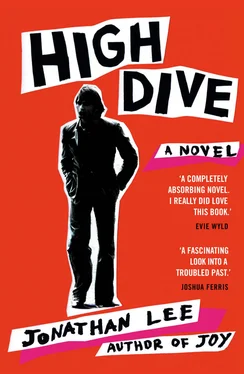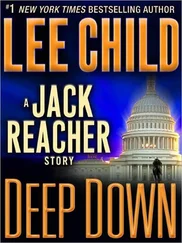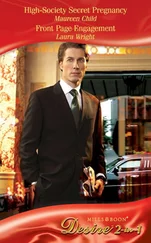‘Cost me nothing but time,’ he liked to say, surveying the clutter around him. But it was clear that all this had cost him a lot of time. Years, probably. Most of a lifetime spent collecting. He said what he loved was the euphoria of completion — getting a whole set of a particular stamp — but he also said that most of his projects resisted wholeness. A given category was rarely finite and there was always, also, the pull towards finding more impressive examples of what you already had. She thought of this place as basically a home for strays — items orphaned or dismissed. There was a lustre of love to it all. You needed to leave your cynicism at the door. Things otherwise neglected or forgotten. Give them some space and say they matter.
The Captain did kind of smell. But it was a comforting smell: that warm, dark, dusty-cupboard scent. He smelt of the attic where the Scrabble set lives, where the Christmas decorations are stored, where the spare tennis racket you’ll probably never need lies on top of the inexplicable Subbuteo set. He smelt a little bit like the school did when you went back during holidays with a friend, maybe to check it was still there, maybe to use its fields for a run, and found that it was only half a school now, because a school was not fully itself without the human scuttle, the morning whispers, the clatter of locker doors, the laughter and bony bodies and lipstick swaps, the screech of rubber soles skidding around corners, the soupy clouds of sprayed deodorant, bra labels examined to confirm or refute claims as to sizing, tired arms draped over deeply scratched desks. Repetition. Lists. To go into school during the holidays was to be upset by its emptiness.
The Captain’s head tilted and his jaw slackened. He seemed to be tuning in to some distant frequency. He coughed. ‘How’s your father?’
‘Oh, OK.’
‘Yes?’
She sighed. ‘Yeah.’
‘Good,’ the Captain said.
‘He’s relieved to be home. And to be at the hotel for a few hours each day.’
‘He should be careful,’ the Captain said. ‘A left-hander, is he?’
‘How did you know?’
‘They worry about everything,’ the Captain said. ‘Small matters. A cautious people. Comes from writing in exercise books at school. The effort to avoid smudges. The need to cock the wrist. It’s admirable, but …’
He began telling her about a chapter in a book called The Public Image , but at some point during his second sentence there was a staircase-creak and the bright sound of bells. She looked up and saw a thin arm parting ribbons in the doorway.
‘Oh, hi.’ The arm belonged to a hairless man. He was one of those people who are all skin and joints: the lean, frantic body of a long-distance runner. There was a small purple bruise on the right side of his forehead.
‘This is Freya,’ the Captain said. ‘Freya, this is Mike.’
‘Hello,’ Mike said. He seemed to struggle with the dusty light. Swatted at it, squinting, as if it might be persuaded to go and live elsewhere.
‘Do you want tea, Mikey? I’m manufacturing some.’
‘I was just going to borrow that LP,’ Mike said.
‘Ah yes, a new addition.’ The Captain foraged under the desk. ‘Here we are, here we go.’
‘Thanks,’ Mike said. ‘See you later, then.’ He disappeared step by step. Only the faint violin music on the radio remained.
‘You lend stuff out? Like an LP library thing?’
‘No no,’ the Captain said. ‘He’s different. Lives downstairs, you see.’
‘On his own?’
The Captain cleared his throat. ‘With me.’
‘Oh, like flatmates.’
‘Almost exactly like that.’
She thought it was good that the Captain had a flatmate. She’d always imagined him alone. ‘So Mike’s into Culture Club. How old would you say he is?’
‘Even us oldies have preferences,’ the Captain said, and she thought she heard a note of reproach.
‘Yeah, sure, I didn’t mean —’
Preferences. The Captain seemed to be blushing. In the silence a vague idea became crisp and tight. Did the Captain have a lover? A lover who was a man? She’d been wrong on these matters before. She thought about Roy Walsh. She’d hoped for a while to see him at the pool. Like a stupid little girl she’d walked past the gym she’d recommended to him, peering in through the windows in case he was inside.
‘You’re very mysterious, Captain.’
The Captain grinned a bigger grin than she’d ever seen from him before. He gestured at the room around him. ‘I have no biography, only this.’ He blinked.
The little kettle began to judder. They listened to it squeal. He made her a tea but left the bag in.
‘How is everything else?’ he said.
‘Everything else is good.’
The Captain put a finger in his ear. He wiggled it around. ‘Continue.’
‘Well, there’s not much to say.’
He nodded. The violin music on the radio gave way to the sound of a piano.
‘I suppose one bit of news …’
‘Yes?’
‘I have a sort of boyfriend, I guess.’
‘Ah.’
‘Though not really.’ She waited. She wondered what she might hear herself say next. There was that old familiar dread of being misunderstood. ‘Labels,’ she said.
The Captain retrieved a sheet of sticky labels and held them up with a certain satisfaction. He began humming a tune. He broke off to enquire as to the length of the relationship. The figure was too pathetic to disclose so instead she said, ‘We’re non-exclusive. I think so, anyway. And he’s a little bit older. But they say that women are more mature anyway, don’t they? So there’s that.’
The Captain leaned forward in his chair. ‘Dog years,’ he said.
‘But we don’t even really know each other. Not really properly, I guess. And he hasn’t actually made contact today. So it’s not a serious thing, for those reasons alone.’
Which it wasn’t, was it? The knowledge went through her in a quick chilly trickle. If it ended soon she wouldn’t even have an excuse to be unhappy. She had a handle on maybe 1 per cent of John’s secrets, and he in turn knew no more than 20 per cent of hers. Probably they were simply killing time with one another. There was probably only a certain amount of time to kill.
She thought of the TV her parents had bought in New York, off-white with rounded edges, and in the evenings the three of them — her, her dad, her mum — watching reruns of a show called Rhoda . The jokes about sex made Freya suicidal. Shut up, she’d think. Please God, shut up. Can’t you see my parents are here?
The Captain fell into a very short power nap.
‘Have you ever thought of leaving Brighton, Captain?’
‘What?’ He yawned. ‘Who’s leaving? Me?’
‘Brighton. You think you’ll stay?’
‘Pah! This place is a peach on a plate. Why would I leave?’
‘It’s the sea you like? The air?’
‘No! Whole place. The Lanes. The little shops. All the colour and the culture. The range of resources for a man’s rummaging. The life , if you’re asking. Best place in the world, Brighton. People don’t realise what they have, on the whole. All of us are frogs in warm water.’
MOOSE WAS IN his bed in his bedroom in his house. Since his return from hospital he’d been in love with the balding carpet. He’d felt an expanding admiration for the dust on the bedside table. The room belonged to him. The cosiness of real curtains and blankets. Plates and bowls, mugs that didn’t match, the spider on the sill that refused to die. Choosing when to turn the lights off.
For Moose these were the days of soups in creative flavours: Freya’s mushroom and sesame; Freya’s split pea and celery; Freya’s creamy artichoke hearts lightly fizzed with fried shallots. His daughter the cook. His daughter the marvel. The days of imagining Marina in a small white towel, on a distant beach, the sun, the sand, and reaching down, down under the blankets, and remembering that his hydraulics had been rendered useless by the beta blockers. It was time to get back to full-time work.
Читать дальше












